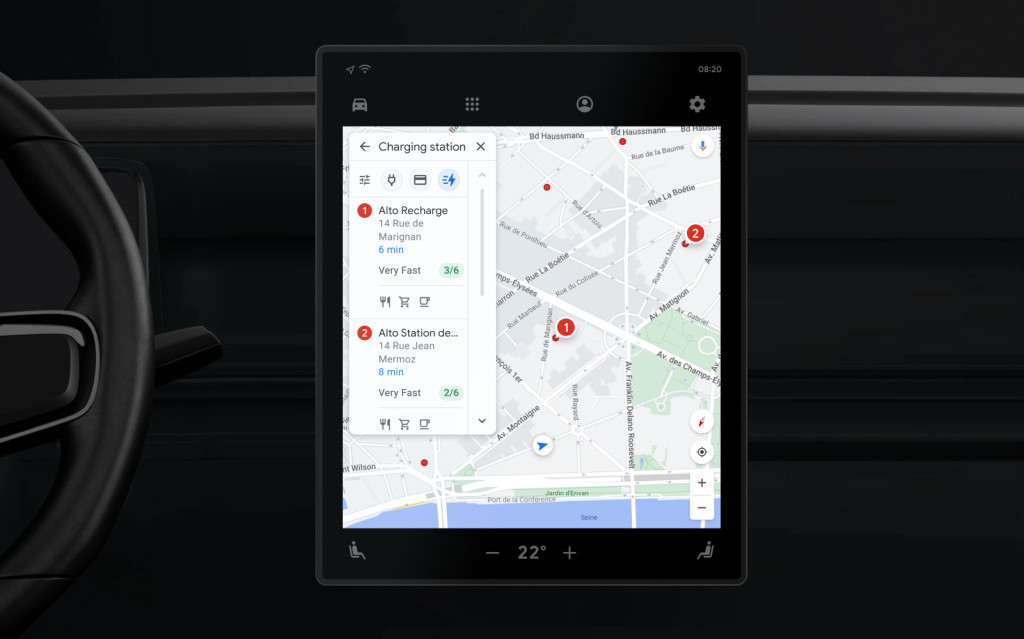Google Maps is helping reduce vehicle emissions through more efficient routing, the company claims.
In October 2021, Google debuted a feature for Maps that allows drivers to select routes based on estimated fuel efficiency. Since launch, drivers have used this feature to prevent 1.2 million metric tons of estimated carbon emissions, equivalent to taking 250,000 cars off the road, Google claims in its latest environmental report (via The Verge).
The routing tool launch in the U.S., but is now available in Canada, Egypt, and nearly 40 European countries, according to The Verge. To calculate the most efficient route, Maps takes into account factors like predicted traffic and hills. Drivers can also specify the powertrain—gasoline, diesel, hybrid, or electric.

I-5 traffic in Seattle
To estimate emissions reductions, Google compared how much fuel Maps users would likely have burned on routes they actually drove to estimates of fuel consumption on the fastest possible route, without the efficiency tool between the tool's 2021 launch and December 2022. Note that if the most fuel-efficient route is also the fastest, Maps will default to it.
Google has also sought to make driving an EV easier by incorporating more features for finding charging stations. It added charging station locations to Maps in 2018, but more recently updated the feature, adding the option to sort by charging power. That helps plot the fastest route for EV drivers while accounting for charging stops.

Google Maps EV charging station functionality
Whether you have an EV or an internal combustion vehicle, driving efficiently is a skill in and of itself. And more companies are looking to make maximizing efficiency easier as the auto industry shifts to EVs.
EV-focused route-planning services like A Better Routeplanner (recently acquired by Rivian) and Chargeway aim to make charging more comprehensible for drivers. Stellantis in June unveiled its own route-planning app and toolkit, part of a new business called Free2Move Charge that will manage charging, hardware, software, and related services for the firm's EVs.












